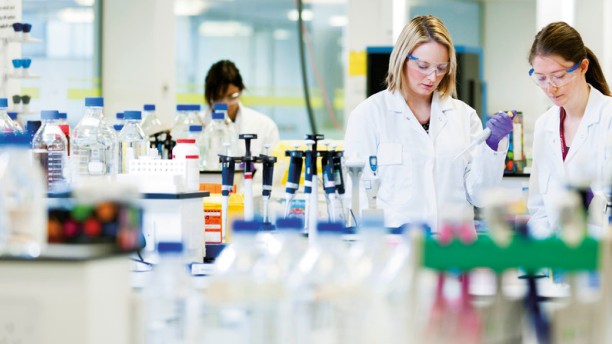Nowadays, artificial intelligence algorithms can perform very detailed data analysis through deep learning. From face recognition to medical impact analysis, the performance of artificial intelligence algorithms has caught up to even surpass human performance. More and more high-tech companies have been applied to the research and development of new drugs by major pharmaceutical companies. They hope to explore ways to improve the efficiency of new drug research and development and save more costs. Atomwise, a San Francisco-based startup and Y Combinator, has built a system called AtomNet (pdf) that attempts to produce drugs for potential Ebola and multiple sclerosis. The project aims to simulate pharmaceutical processes using supercomputers, AI and sophisticated algorithms to predict the effectiveness of new drugs while reducing R&D costs. Atomwise has launched two projects that show the potential of AtomNet, multiple sclerosis drugs and Ebola virus. According to Atomwise, MS drugs have been licensed to unpublished British pharmacology companies, and Ebola drugs are being prepared for submission to peer-reviewed publications. Atomwise recently used AI technology to analyze and test more than 7,000 drugs in less than a day, contributing to the search for Ebola treatment options. According to the company's statistics, this analysis can take months or even years to complete using traditional methods. However, Alexander Levy, chief operating officer of Atomwise, mentioned that AtomNet still needs to be tested, and artificial intelligence does not solve all medical development problems. In addition to excavating compounds to develop new drugs, Berg Biopharma is developing new drugs by studying biological data. "Berg uses its Interrogative Biology artificial intelligence platform to research human health organizations, explore human molecules and cell defense organizations, and the mechanisms of pathogenesis, using artificial intelligence and big data to estimate the potential drug compounds of the body's own molecules. As the cost of trial and error is too high, more and more drug developers are turning to computers and artificial intelligence, hoping to use this technology to narrow down the range of potential drug molecules, thereby saving time and money for subsequent testing. In order to identify genes encoding proteins that have great potential as drug targets, these vendors pin their hopes on algorithms. At present, some new algorithm models add a new level of complexity to narrow the range of related proteins, drugs, and clinical data to better predict which genes are most likely to bind proteins and drugs. Researchers estimate that about 15% to 20% of new drug costs are spent on exploration. Typically, this means hundreds of millions of dollars in spending and 3 to 6 years of work. Nowadays, some people hope to shorten this process to several months through AI and significantly reduce the cost of research and development.
China manufacturer for Waterproof Change Robe,long sleeve dry robe, football Change Robe,surfing dry robe, dry robes are mainly use for surfing, swimming, paddle, rugby, football and etc.
Features:
1. Our outer shell and lining are 100% recycled fabric
2. Two big fleece pockets for warm purpose
3. YKK zip reverse puller , which ensure pull up inside.
4. Big warm hood for warm purpose.
5. Inside waterproof pocket for phones.
Sample is available now, sample time 7-10 days. Welcome to discuss more details with us.
Suzhou Golden Gamrnet MFG Co.,Ltd , https://www.suzhoumfg.com